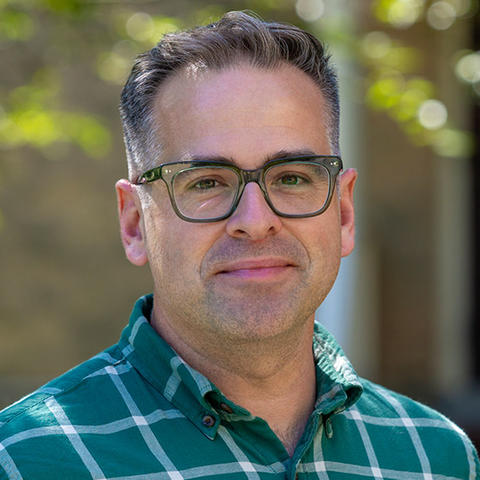$2 Million Gift from Alex Robinson '96 Supports Summer Experiences for All

Photo by Patrick Montero.
Details
Robinson’s gift helps realize a cornerstone of Haverford 2030, the College’s strategic plan.
Haverford has a deserved reputation for graduating students who go on to have successful careers, especially once they reach the midpoint and beyond in their professions. But early on, alumni have said, they sometimes struggled to land a first job.
Alum Alex Robinson ’96, along with his wife, Monica, wants to change that dynamic with a gift of $2 million to support summer experiences for all, a lead gift toward a $20 million initiative. The restricted endowment is the foundation of a larger effort to ensure that every Ford, regardless of major, has an opportunity for at least one paid, career- or research-oriented summer internship over the four years, a key element of the College’s Haverford 2030 strategic plan.
“Haverford does the hard part really well — developing strong, long-term leaders,” says Robinson, the co-founding partner of New York City-based Tenor Capital Management Company, where he also heads research. “When you graduate, you’re able to take on the challenges that come to you three years, five years, 20 years into your career. The easy part, getting a job right out of the door, Haverford does not do as well. You’re not as ready on Day One.”
Other alumni have shared similar views about those first few years after graduation, according to College President Wendy Raymond. Providing summer experiences for all, she says, would guarantee exposure to real-world experience during college and better prepare students for change-making careers out the door. “Our students want to be able to create solutions to vexing problems,” Raymond says. “Expanding access to summer opportunities allows all students to experiment during their time at Haverford to figure out what kind of impact they want to have and how they want to have that impact.”
In Robinson’s case, an internship helped him reassess his career plans. As a rising sophomore, he was an unpaid intern on Capitol Hill. To cover rent and other expenses, the economics and math major worked at a movie theater several nights a week. “It was hard but absolutely worth it,” he says. “That summer experience was as much a part of my growing up as going to classes and developing friendships and participating in clubs.”
It proved to be an invaluable turning point that made him realize his fascination with politics might not prove as fulfilling a career as he had expected, leading him to finance. It also drove home the importance of career-oriented summer jobs to both build professional skills and learn something about oneself. He adds that it also helped him realize that access to these types of opportunities requires financial support above and beyond networking connections that the College is able to facilitate.
He sees the program as a way for Haverford students to further set themselves apart at a critical and often highly competitive point in their career development. “It’s really important to get work experience,” he says. “What you take to the post-college world isn’t just your classroom experience anymore. It’s all the things that you bring to the next step of your life.”
Executive Director of the Center for Career and Professional Advising Marissa Deitch agrees, adding that summer experiences allow students to explore a wide range of fields, including business, arts, culture, athletics, sciences, entrepreneurship, finance, and social responsibility. Robinson’s gift and the remaining $18 million yet to be raised will bolster the College’s investments in infrastructure to support summer experiences, such as a centralized platform for tracking applications, dedicated personnel, and most importantly, stipends to support students financially, says Deitch.
While Robinson wanted primarily to fill a gap with his gift and support the strategic plan, he says it serves another important purpose.
“My four years at Haverford were truly transformative. The College changed who I am, how I think, the opportunities that have been available to me. I feel I owe an unpayable debt of gratitude, and I could never do anything for Haverford compared to what Haverford has done for me.”
— Lini S. Kadaba




